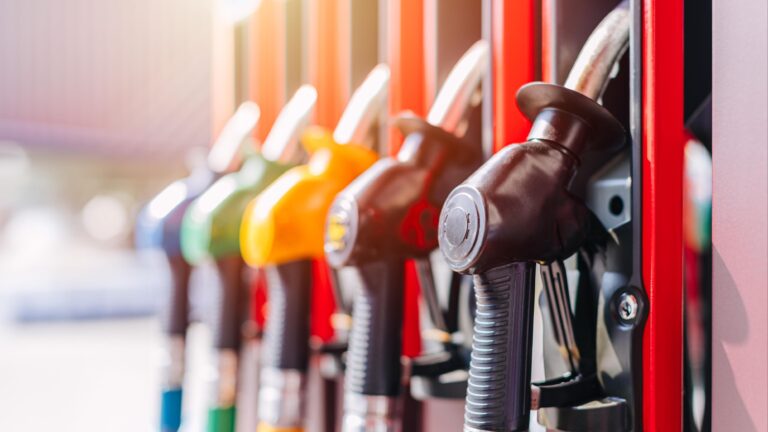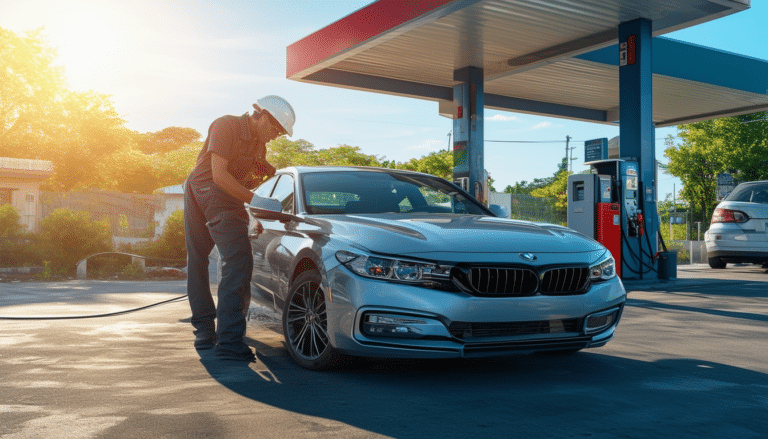How to reduce fuel expenses with proper vehicle maintenance

Reducing spending on fuel is a goal many drivers wish to achieve. One of the most effective methods to achieve this lies in performing proper maintenance of our vehicles. Various factors, such as tire pressure, the weight of the car, and driving habits, influence consumption efficiency. By adopting simple yet effective practices in vehicle care, fuel performance can be significantly improved, which not only saves money but also contributes to a more positive environmental impact.
Proper vehicle maintenance is essential not only for prolonging the car’s lifespan but also for optimizing its fuel consumption. With some simple changes in driving habits and a methodical approach to routine maintenance, it is possible to achieve significant savings in daily fuel expenditure. Below are various strategies to help drivers reach this goal.
The importance of tire pressure
One of the most crucial factors affecting fuel consumption is tire pressure. Keeping tires inflated to the pressure recommended by the manufacturer can reduce fuel consumption by up to 5%. When tires are under-inflated, the vehicle has to work harder to move, which increases gasoline consumption. On the other hand, proper pressure allows for better grip and safety in driving.
The weight of the vehicle
Reducing the weight of the vehicle can also contribute to significant fuel savings. The lighter the car, the less energy it will need to move. Removing unnecessary items from the trunk and avoiding carrying excessive luggage can be a simple solution to improve fuel consumption efficiency.
Route planning
Route planning is a measure that not only saves time but also fuel. Avoiding traffic congestion and choosing direct paths facilitates smoother driving and reduces harsh braking and acceleration that consume more gasoline. Using navigation apps that provide real-time traffic information can also prove to be very useful.
Efficient driving style
The driving style has a significant impact on fuel consumption. Driving in a smoother and more constant manner, avoiding rapid accelerations and sudden braking, helps optimize fuel performance. Additionally, it is advisable to maintain a moderate speed and use cruise control on long roads, which can result in more efficient gasoline usage.
Regular vehicle maintenance
Regular maintenance is key to ensuring that all parts of the vehicle function optimally. Performing periodic oil changes and replacing air and fuel filters will ensure that the engine operates efficiently. In this sense, choosing the best motor oil for each type of vehicle also plays a critical role in reducing fuel consumption. For more information on how to choose the right oil, you can check here.
Conclusion
Implementing small changes in driving habits and following a proper maintenance routine not only improves fuel efficiency but also enhances safety and overall vehicle performance. To enjoy a car that is not only efficient but also retains its value, it is recommended to keep the paint and lighting in good condition, both vital for the vehicle’s integration into the environment. For more information on how to care for automotive paint, visit this link.
Reducing fuel spending is not only a financial goal, but also an important contribution to a more environmentally friendly driving. Proper vehicle maintenance becomes an essential tool to achieve this goal. Some key aspects are tire pressure, engine condition, and vehicle load.
Starting with the tires, maintaining the proper pressure according to the manufacturer’s specifications can improve fuel efficiency by up to 5%. Deflated tires create greater rolling resistance, which will force the engine to work harder, thus increasing fuel consumption. It is advisable to check tire pressure regularly to ensure they remain at optimal levels.
Additionally, the performance of the engine also has a significant impact on fuel consumption. Performing timely oil changes, replacing filters, and keeping the injection system in good condition are some tasks that contribute to better efficiency. A well-maintained engine not only consumes less fuel but can also extend the vehicle’s lifespan.
Another factor to consider is load. Traveling with a light vehicle not only allows for improved fuel consumption but also reduces wear on mechanical components. The more load the car carries, the greater the resistance to movement and, therefore, the engine will have to exert additional effort.
Finally, adopting effective driving habits, such as avoiding sudden accelerations and maintaining a constant speed, complements proper vehicle maintenance and maximizes fuel efficiency. By implementing these practices, each driver can contribute not only to their personal economy but also to a cleaner and more sustainable environment.





